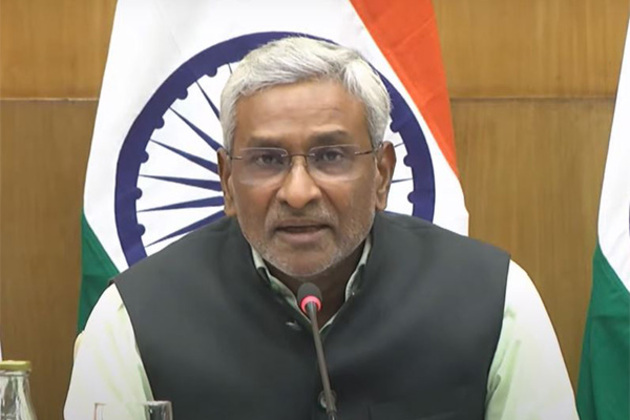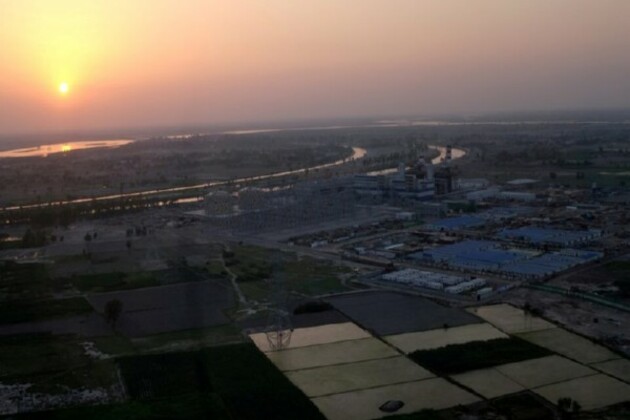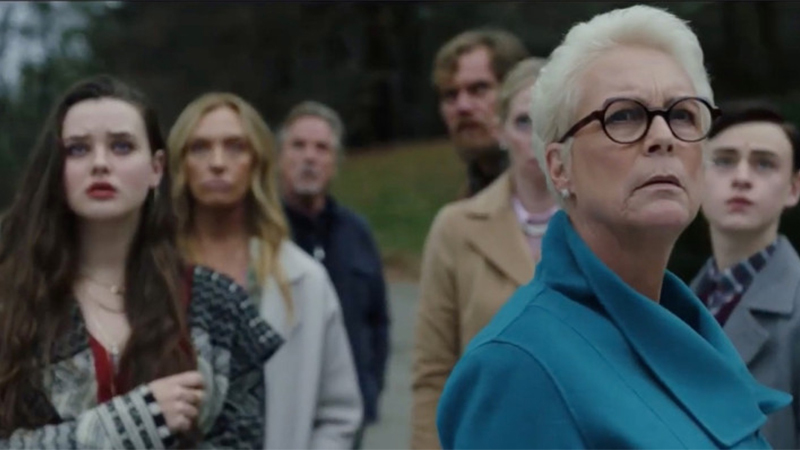Paid for digital streaming has a place in theatre's return
The Conversation
02 Jul 2020, 20:11 GMT+10

From classic Andrew Lloyd Webber plays to the release of a recording of the original cast of Hamilton, theatre lovers have been able to stream the best of the stage at home during lockdown.
Digital streaming has been a welcome stand-in while live performances haven't been possible. However, as pubs and restaurants start to reopen this weekend, theatre managers have been looking around their stalls and realising how few audience members they can safely get in the building. Crowds of 2,000 are still a long way off, so theatre is likely to stay on our screens for a long time to come.
While streaming has proven popular, making theatre accessible to a wider audience across the country, it raises the question how it can help live theatre's return and what role it might play once it's back.
One particular success has been National Theatre at Home its production of Richard Bean's One Man, Two Guvnors. The National Theatre was in an enviable position of having a treasure trove of recorded shows ready to go, thanks to their highly successful NT Live programme. The project, launched in 2009, involved the broadcast of their productions to cinemas and arts institutions in the UK and internationally.
Other theatre companies were not so ready and have had to change and adapt to new digital practices. Some have done this in really inventive ways, such as Sheffield's Unshut Theatre. Their 2020 festival features an array of works made for a socially distanced world. Performances are happening through the post, by podcasts, on Zoom, on game streaming platform Twitch and even Animal Crossing. Each of these explores new ways to include audiences in the performance when they can't be in the same room.
Reaching new audiences?
With the government's (controversial) advice that one of the next steps of unlocking the arts will be audience-less performances, we'll probably start to see more live streaming of shows. They might not be as well-produced as the National Theatre's recordings but will make up for that in being a communal, instantaneous experience.
As an audience researcher, I regularly hear lots of the reasons why people just can't go to arts events. It's too expensive, too far, I can't get a babysitter, I don't know if it will be any good, I don't have anyone to go with, I don't know how to behave, I'll feel out of place and people will judge me for being there.
Digital performances have the potential to open up access to the theatre to much wider populations. You can watch it at home after the kids have gone to bed. You can watch it in chunks when you have a bit of free time. If it's rubbish, you can just turn it off without having to waste any money. You don't have to be in London or other urban arts centres. And there is no one else in the audience to make you feel like you don't belong.
We don't yet know if digital works are changing the make-up of the audience for theatre - but research is being carried out.
Keeping theatre alive online
While free access to content could be great for building new audiences, this business model is unsustainable. Actors and people behind-the-scenes need paying, broadcast technology is expensive, and without people writing new plays, theatre will stagnate.
There is no real consensus yet on how to monetise online performances while keeping it accessible. However, some have asked for donations for new zoom material, like New Diorama theatre in London. While others are charging a nominal fee, like Sadler's Wells who is asking for Pound 5 to view a new film of the last rehearsal before lockdown of Pina Bausch's The Rite of Spring in Senegal.
We're also in danger of reaching - or already having surpassed - saturation point for online content. Standing out in a busy online world is becoming more and more difficult as productions from around the world compete for audiences. It's a far cry from the normal choice between a few local theatres.
All this means that we're at risk of de-localising arts provision. If an unlimited number of people can watch high-quality online performances from the National Theatre, what appetite will there be for fringe theatre made on a shoestring budget?
Research shows that we shouldn't be too worried about digital theatre taking over. The hushed excitement before it starts, the thrill of watching a one-off event, talking about it with friends in the bar afterwards - live theatre has an appeal that is hard to replicate online. However, venues, theatre companies and freelancers need additional support from the government until theatres can welcome back audiences fully.
Where digital works best, therefore, is when it functions not as a substitute for live performance, but as a means of creating work that is only possible via an online platform. Digital work which meets participants where they are (like their Animal Crossing island) and allows them to actively participate on their terms is likely to be a part of life beyond lockdown.
Author: Sarah Price - Research Associate with the Sheffield Performer and Audience Research Centre, University of Sheffield 
 Share
Share
 Tweet
Tweet
 Share
Share
 Flip
Flip
 Email
Email
Watch latest videos
Subscribe and Follow
Get a daily dose of Middle East Star news through our daily email, its complimentary and keeps you fully up to date with world and business news as well.
News RELEASES
Publish news of your business, community or sports group, personnel appointments, major event and more by submitting a news release to Middle East Star.
More InformationInternational Business
SectionTrump-backed crypto project gets $100 million boost from UAE fund
LONDON, U.K.: A little-known investment fund based in the United Arab Emirates has emerged as the most prominent public backer of U.S....
Russias largest bank delivers pessimistic 2026 forecast
Dwindling demand for loans due to high interest rates is hurting Sbers profits, its CEO has warned Russia's largest bank, Sber, is...
PM Modi's 5-nation visit: Vaccine development among focus items in Ghana; discussions in Namibia to touch on UPI expansion
New Delhi [India], June 30 (ANI): Prime Minister Narendra Modi's upcoming five-nation tour, beginning on July 2, will see significant...
India to set up vaccine hub in Ghana, expand UPI in Namibia during PM Modi's multi-nation tour
New Delhi [India], June 30 (ANI): Prime Minister Narendra Modi's upcoming five-nation tour, beginning on July 2, will see significant...
Cash disappearing in China Le Monde
Mobile payments are dominant in the Asian country, while the traditional means of exchange has dwindled to near extinction, the outlet...
Pakistan government increases gas prices
Islamabad [Pakistan], June 30 (ANI): Pakistan's Oil and Gas Regulatory Authority (OGRA) announced a gas price hike for the majority...
International
SectionFox faces $787 million lawsuit from Newsom over Trump phone call
DOVER, Delaware: California Governor Gavin Newsom has taken legal aim at Fox News, accusing the network of deliberately distorting...
DeepSeek faces app store ban in Germany over data transfer fears
FRANKFURT, Germany: Germany has become the latest country to challenge Chinese AI firm DeepSeek over its data practices, as pressure...
Canadian option offered to Harvard graduates facing US visa issues
TORONTO, Canada: Harvard University and the University of Toronto have created a backup plan to ensure Harvard graduate students continue...
Israel should act fast on new peace deals, Netanyahu says
JERUSALEM, Israel: Israeli Prime Minister Benjamin Netanyahu says that Israel's success in the war with Iran could open the door to...
UN offer rejected in Dreamliner crash investigation
NEW DELHI, India: India has decided not to allow a United Nations (UN) investigator to join the investigation into the recent Air India...
UN climate agency gets 10 percent boost amid global budget cuts
BONN, Germany: Despite widespread belt-tightening across the United Nations, nearly 200 countries agreed this week to increase the...













